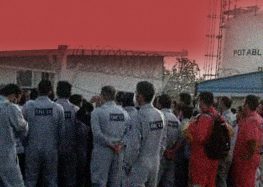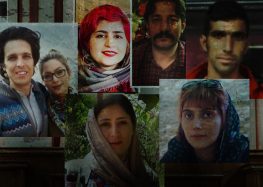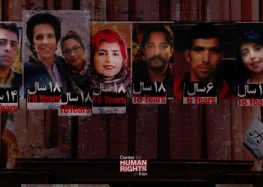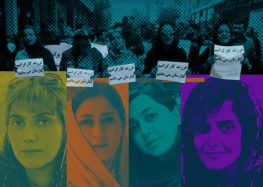Largest Trade Union Body Asks Iran’s Leader to End Persecution of Prominent Activist
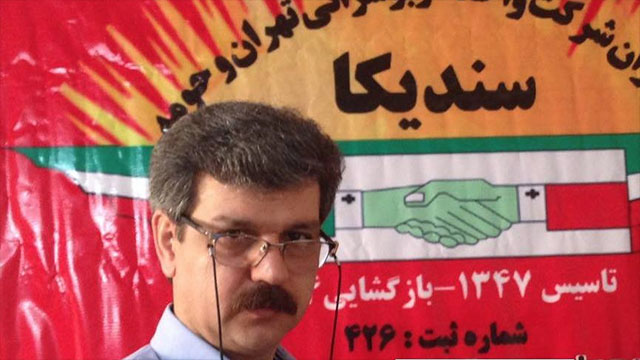
The International Trade Union Confederation (ITUC) has written to Iran’s Supreme Leader Ali Khamenei calling for an end to the persecution of Reza Shahabi, a prominent labor activist who has refused to comply with a summons to return to prison.
“A return to detention of Reza Shahabi, unjustly convicted for his trade union activity, would be only a further violation of international conventions and a violation of human rights,” said the organization in a letter dated February 13, 2017.
“We hereby express the ITUC’s serious concerns on behalf of our 181 million members in 162 countries about the renewed attempt by the Iranian judiciary and intelligence authorities to force Reza Shahabi back to prison,” continued the letter, published on the Tehran Bus Workers Union website on February 15.
Shahabi, 44, a member of the governing board of the Union of Workers of the Tehran and Suburbs Bus Company, was arrested in June 2010 for his peaceful activism and sentenced to six years in prison for “propaganda against the state” and “assembly and collusion against national security” by Branch 15 of the Tehran Revolutionary Court.
After several hunger strikes in Rajaee Shahr Prison and Evin Prison, he was released on September 23, 2014 on medical furlough (temporary leave) after posting a 200 million toman ($62,000 USD) security deposit.
“If Reza Shahabi does not return to prison, the prosecutor’s office will seize his deposit,” an informed source told the Campaign for Human Rights in Iran on February 10, 2017.
After Shahabi was summoned back to prison in October 2016, an informed source told the Campaign: “Mr. Shahabi (has already) spent four years in prison (June 2010-September 2014) and then he went on medical furlough for the rest of his term.”
“He was not contacted by prison officials and went about his life,” said the source. “Then, in October (2016) the prosecutor’s office contacted Shahabi’s wife and said he has three more months left to serve of his sentence.”
“However, counting his time on furlough, he has finished his prison time,” added the source.
According to the bus union’s website, Shahabi joined the organization in 2004 and was elected to its governing board in June 2005. A few months later he was fired for participating in a strike.
Until his arrest in 2010, he continued his peaceful activism while striving to get his job back.
Iran is a signatory to the International Covenant on Civil and Political Rights, which mandates in Articles 21 and 22 freedom of association and guarantees the right to form trade unions, and to the International Covenant on Economic, Social and Cultural Rights, which guarantees in Article 8 the right of workers to form or join trade unions and protects the right of workers to strike.
The Iranian Constitution also contains provisions for such rights: Article 26 guarantees the right to form “parties, societies, political or professional associations,” and Article 27 states that “Public gatherings and marches may be freely held, provided arms are not carried and that they are not detrimental to the fundamental principles of Islam.”
Despite this, independent labor unions are banned in Iran, strikers are often fired and risk being detained, and labor leaders face long prison sentences on trumped up national security charges.


